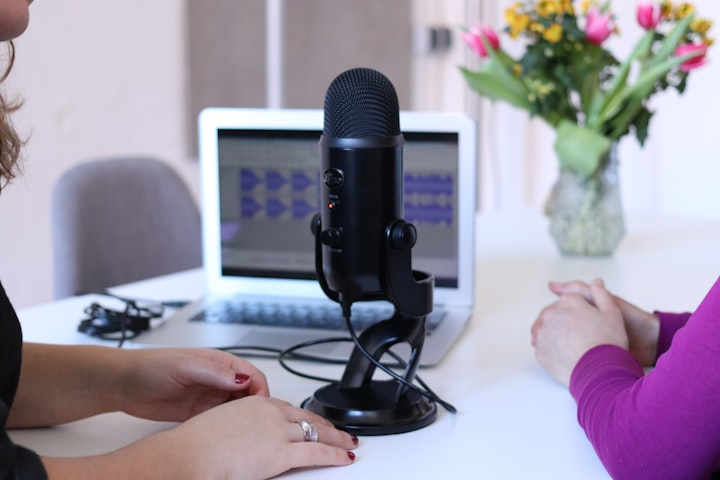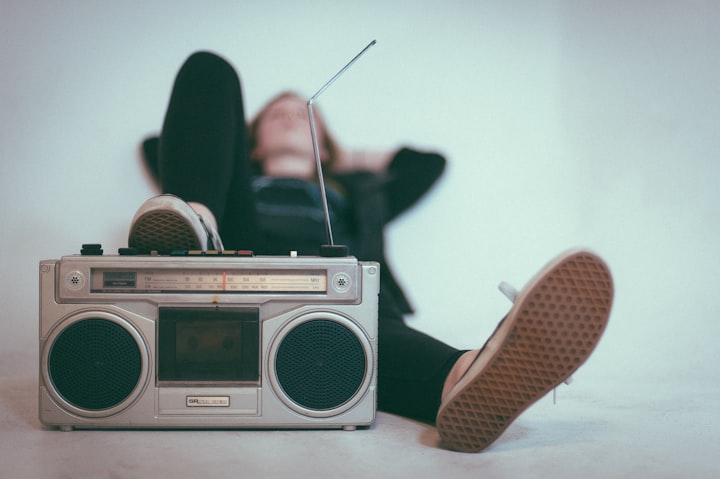What Do You Need To Start Your Own Podcast
What Do You Need To Start Your Own Podcast
Once you have edited your episode, you can export the MP3 and upload it to a podcast hosting provider. Your podcast host can help you spread your podcast to Apple Podcasts, Spotify and other listening apps.
Once you have the podcast format, the approximate length of the broadcast and the release timetable, you are ready to invest in podcast equipment. To start a podcast you will need a USB microphone, a Pop filter, headphones and computer. Record and edit your podcast. While you have connected your microphone to your computer, you can also record and edit the podcast episodes with audio editing software.
Pods have a low entry barrier, so if you want to start a podcast, it is easy to start the process with very little effort or experience. If you have a computer, laptop, smartphone and internet connection, you can start a free podcast. You could even record a podcast on your iPhone with just one set of headphones.
You need to plan your podcast, select a track, start recording devices, write a superb description of the podcast, record & edit your first episode. You can distribute your content free of charge through a podcast hosting service such as Anchor or in a podcast directory. You could also monetise your podcast through sponsorship, advertising, affiliate marketing, crowdfunding or donations.
As an entrepreneur, you should learn how to launch a podcast to reach a growing audience and expand your business through content marketing. You don't have to be a technical person, and it doesn't take much money to learn how to make a podcast. Once you've started, you can experiment with hosting your podcast for free by anchoring yourself to SoundCloud.
To start your podcast career, you don't have to buy the best podcast recording software or expensive equipment. All you need to get started is a microphone, headphones and audio editing software to produce a high quality podcast.
If you start to get more experienced and your podcast attracts a larger audience, you can switch to better equipment. Equipment to start a podcast is important, but being a good host also involves preparation, media and a sense of the river.
Marketing and showrunner have written some great articles about what it takes to be a great podcast host. There are many products on the market that are suitable for a wide range of price points so if you have a tight budget here are some examples of budget podcasting setups. Chances are you'll start your podcast with something simple, which means you'll find an over-the-ear pod with a built-in microphone.
For podcasting features itself, one of the most convenient ways to get started is a USB microphone. A USB microphone allows you to connect your computer and bypass the need for an audio interface. Most buying advice for podcast devices that you will read online is that you should buy a podcast microphone with a dynamic microphone that fires forward and has a good rejection, meaning that it will record your voice and unwanted noises while you are recording.
Once you have recorded, edited and produced your podcast, you can upload it to a hosting site such as Libsyn, SoundCloud, Anchor or Transistor. These pages generate your RSS feed for you and you can present it to Apple Podcasts, Spotify or any other player.
For the armchair broadcasters and voice-recording apps eager to get into the game, making a professional-sounding podcast is not so easy. If your goal is to penetrate the podcast space, and your episodes are listed on the major podcast platforms (Spotify, Apple Podcasts, Google Podcasts), you need to launch a podcast and take the additional step of uploading episodes to YouTube as part of your audience building strategy. If you upload your podcast to YouTube, it would be a podcast, it would just be a YouTube channel.
This guide explains how to create, record and publish your own basic podcast so people can listen to it. It covers everything from the technical to the abstract to the podcasting concepts. It is your step-by-step guide on how to start audio-streaming and how to create a podcast.
Since your podcast and RSS feed connect you to your audience, it is important to choose a podcast hosting service that is appropriate for your needs. We've highlighted some of the most important criteria to consider, along with instructions on how to download a podcast to Apple Podcasts and Spotify.
According to Edison Research, the number of Americans who listen to podcasts every week has increased by 120% over the last four years and 90 million Americans listen to podcasts each month. There's a huge appetite for podcasts because people want to hear big shows, not just average ones.
Podcasts have democratized the way people share their thoughts with the world with blogs and social media and episodic audio series continue to gain traction with listeners looking for entertainment value and educational dialogue. As the audience for podcasts continues to grow, there is never a better time to launch a podcast for your business, brand or personal hobby. With thousands of podcasts on sites like iTunes and Amazon, and thousands of others you can find on YouTube and SoundCloud, it's easier than ever to start a podcast and maintain its success.
Choosing the best podcasting setup can be confusing, especially if you don't have a background for audio recordings. We asked three popular podcast host to tell us how they launched their podcast, which devices they recommend and their tips on how to inspire and entertain your audience.
To make this selection, we have put together three podcasting equipment packages based on the number of people you will record for. A podcast is an episodic series of audio files that can be subscribed to, downloaded and listen to by users.
For your podcast to function you will need an audio file and an RSS feed so that users can subscribe and download new episodes as they appear. A podcast listening platform is an app that receives audio files from a podcast hosting service or RSS feed. The files must be exported with certain settings to improve the listening experience.
If you are serious about podcasting and make lots of video calls, you all want to invest in high-quality software to get professional results. The recording software you choose should be reliable and easy to use. Many aspiring podcasters use GarageBand for their Mac users and Audacity (although we admit we are biased here) and RiversideFMA's remote interview recording features are high quality and have a low barrier to entry.






Comments
There are no comments for this story
Be the first to respond and start the conversation.